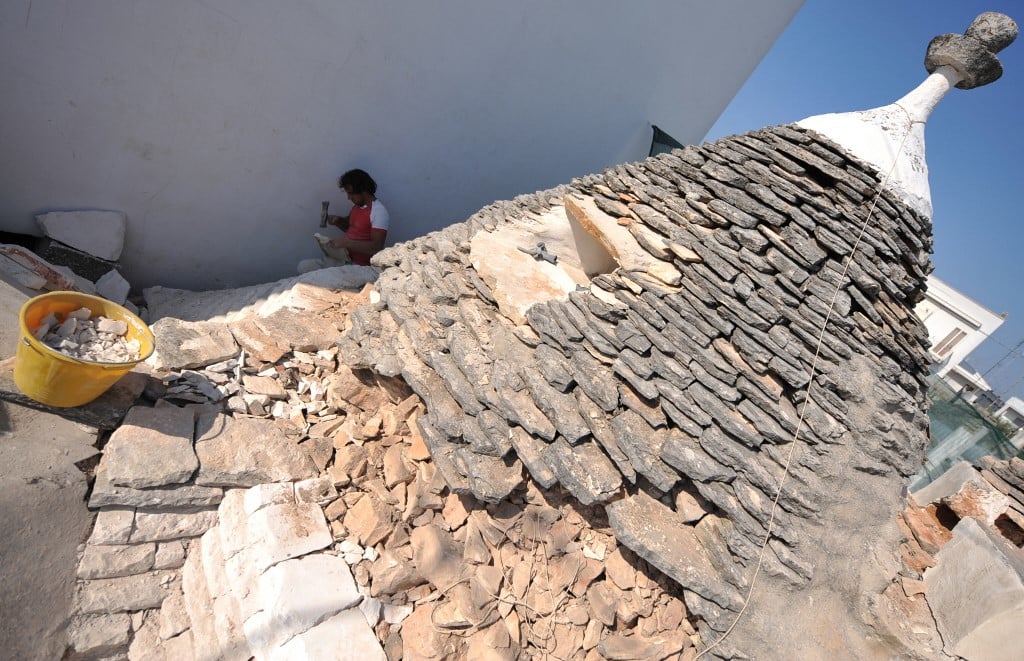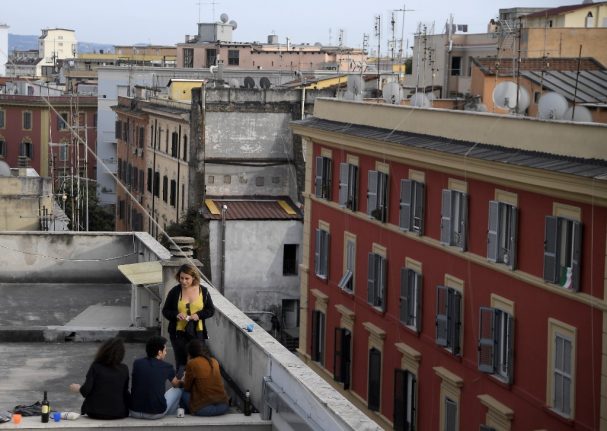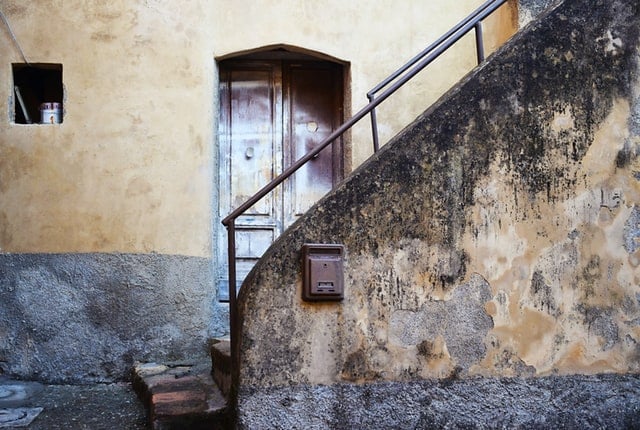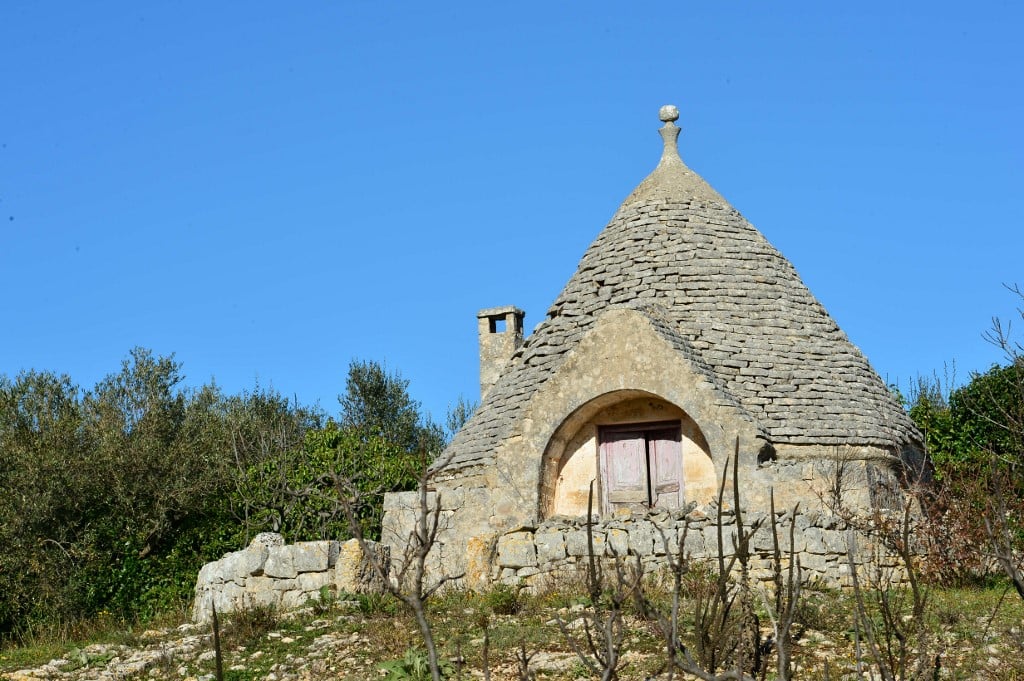Despite some difficult months in 2020 and ongoing uncertainty, there is now “cautious optimism” about the outlook for the Italian real estate market in 2021.
How has the pandemic affected the Italian real estate market so far?
Data from the Italian Revenue Agency shows there were 374,545 residential property transactions completed in 2020: a decrease of -13.9% compared to the same period in 2019.
In the first nine months of 2020 property prices in Italian cities fell by -1.1% on average, compared to 2019, according to a recent joint report by Italian estate agencies Gabetti, Professionecasa and Grimaldi.
However, property prices in areas outside regional capitals rose, in many cases for the first time in years, as property experts say people are increasingly looking for larger homes in quieter areas.
“Non-capital municipalities grew most of all, by +8.1%, compared to an overall decline for the capital city municipalities (-6.7%),” the report stated.
READ ALSO: ‘Reversed trend’: Property in southern Italy is now in demand due to the pandemic
Average times needed to complete a sale remained stable, at an average of 4.5 months, as did the final discounts at the end of negotiations, with buyers getting around 12% off the asking price on average.
“Italy’s real estate market has withstood the impact of the pandemic well, under the pressure of changed housing needs triggered by the crisis, and with interest rates at historic lows,” explained Vincenzo De Tommaso, Head of the Studies Office at property portal Idealista.
“Estate agents have been able to adapt to changing circumstances by finding a way to work even in conditions of social distancing thanks to the help of technology,” he said. “We have witnessed an increase in advertisements with virtual tours and agents have started to hold open house events with live streaming.”
“The prospects for 2021 are marked by cautious optimism,” he added. “At the first signs of economic recovery, the real estate market has always been quite quick to recover.”
- Escape from the city: These are the 21 cheapest Italian provinces to move to
- Could Italy's abandoned villages be revived after the coronavirus crisis?
- Demand rises for homes in the Italian countryside during lockdown
Things are also looking up for the international property market, as Lake Como-based real estate expert Sara Zanotta told The Local.
Her agency, Lakeside Real Estate, was among those which adapted to the coronavirus restrictions by conducting virtual tours.
“After the first months of the emergency, that have obviously been tough for everyone, from July the Lake Como property market has undergone a real boom,” Zanotta said.
“We had international clients – unable to fly to Italy but still willing to find a property in our region – buying properties from abroad with virtual tours.”
Plus, she explains, following the first lockdown in Italy the agency saw a sharp rise in the number of Italians looking to purchase second homes “intended both for personal use and as a source of income“.
“The proximity of the lake to the big cities, especially Milan, has led to a good induced activity in recent months: compared to the same date in 2019, the increase in Italian customers to date has seen an increase of +45%.”
“Many of the stalled properties on the market were sold within a few months after the first lockdown,” she added. “We’ve reached an encouraging point where demand exceeds supply.”
Prices remained steady for the most part and rose only in certain prime locations, she said.
How will things change in 2021?
The pandemic has of course changed many peoples’ priorities when it comes to housing, and new government incentives may also be influencing choices in 2021.
The report by Gabetti, Professionecasa and Grimaldi says demand is growing for the following:
-
“Multifunctional homes, with larger dimensions and modular spaces adapted for remote working.
-
Outdoor spaces, terraces or gardens.
-
Condominium services, such as garage, gym, or multifunctional rooms.
-
Greater use or purchase of second homes, thanks to the rise of remote working (presumably even after the emergency) and the increased propensity to spend holiday periods in one's own home.”
The report also notes that government financial incentives included in the May 2020 Relaunch Decree “have created important development opportunities for the real estate sector which will materialize particularly in 2021”.
These include tax deductions of up to 110% for specific energy efficiency and anti-seismic works, the installation of photovoltaic systems, and systems for charging electric vehicles.
“This is quite interesting as it speeds up the requests for properties in need of huge renovations,” noted Zanotta.
“Enquiries for this kind of property will increase in 2021 by up to +45%,” she predicted. “From July 2020 to December 2020 these requests increased by +32% on the same period in 2019.”
 There are now financial incentives for those buying a quirky old Italian property in need of serious TLC. Photo: Christophe Simon/AFP
There are now financial incentives for those buying a quirky old Italian property in need of serious TLC. Photo: Christophe Simon/AFP
What about mortgage rates?
Mortgage rates have been on a downward trend in Italy for some time. Renato Landoni, partner at investment firm Kiron Partners, said this won’t change in 2021 despite economic concerns. “The European Central Bank will maintain an accommodative interest rate policy as long as the level of inflation remains below 2 points,” he said.
“No particular changes are therefore expected in 2021; rates will remain low and mortgages will be affordable, especially with regards to the fixed rate.”
He added that banks would remain “competitive in relation to mortgage offers”.
- Why finding a bargain Italian property could be harder than you think
- 'What happened when I bought a house in Italy during lockdown – without viewing it'
- 'We're Covid-free': Remote Italian village tempts buyers with one-euro homes
Roberto Anedda, Vice-President of mortgage company MutuiOnline.it, told Idealista that “Many problems in the economy have not yet come to a head“.
“We’re still struggling with the long-term effects of the pandemic,” he said. “2021 will still be a year of uncertainty, but at the same time it is expected that it will not be as dramatic (as 2020).”
“In recent months there have also been positive factors; many Italians see buying a property as an excellent way to protect their savings from a crisis.”
See more in The Local's Italian property section.




 Please whitelist us to continue reading.
Please whitelist us to continue reading.
Member comments